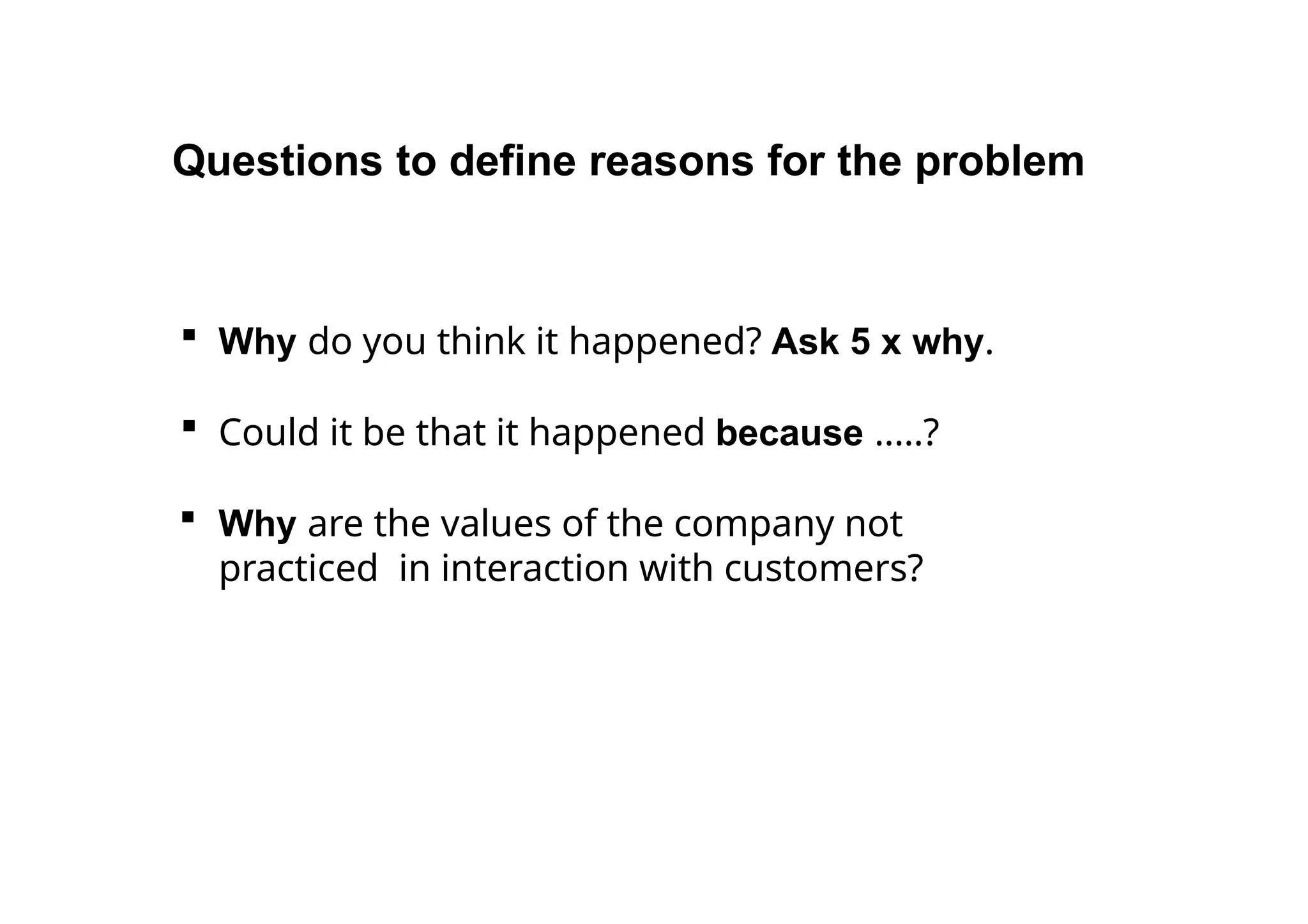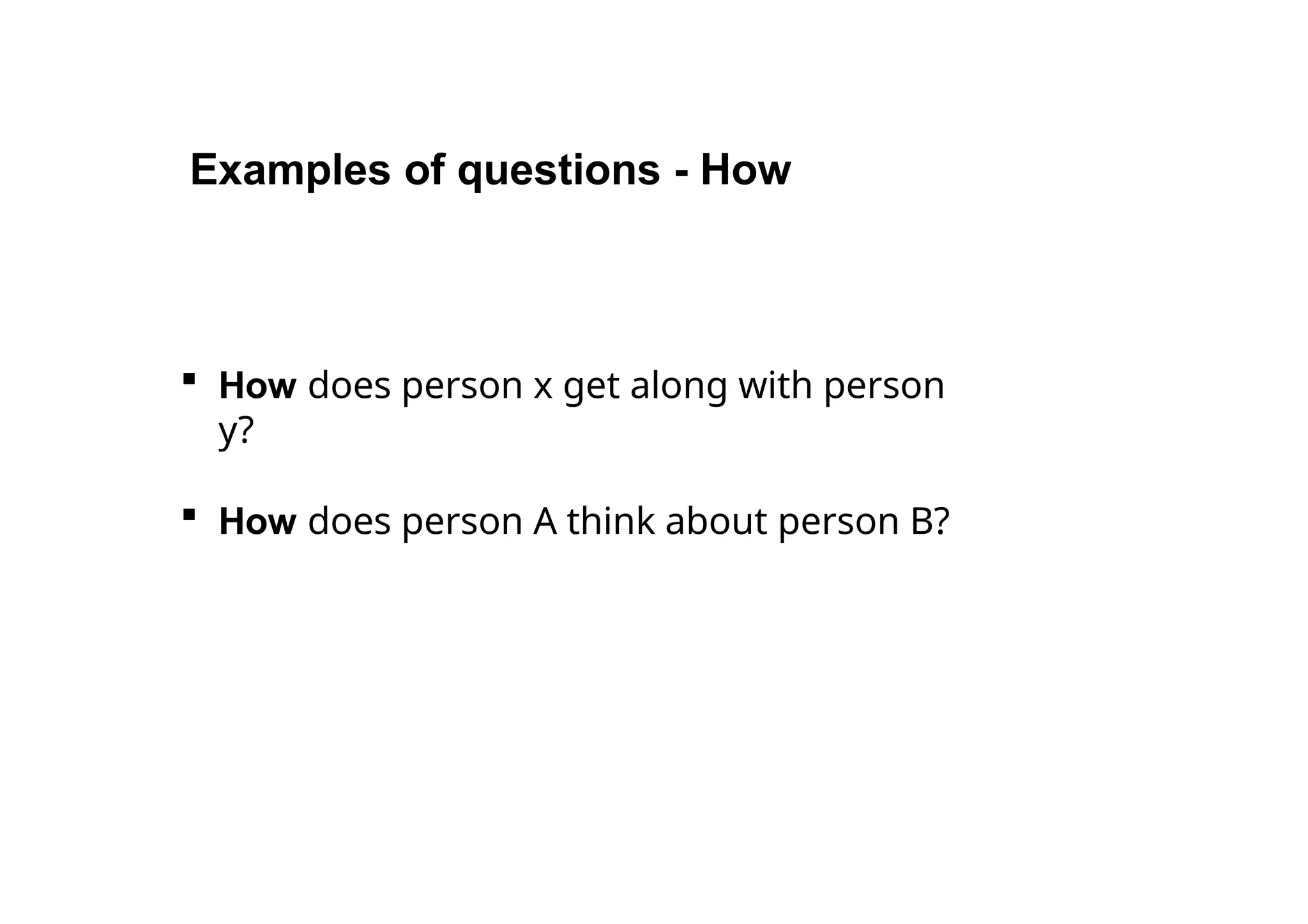The document outlines various types of questions used in coaching psychology, categorized into clarifying, connection-seeking, strategic, and reflective questions. Each category serves distinct purposes, such as defining problems, exploring relationships, influencing behavior, and encouraging self-reflection. The content includes examples and methodologies aimed at enhancing understanding and promoting personal growth.




















